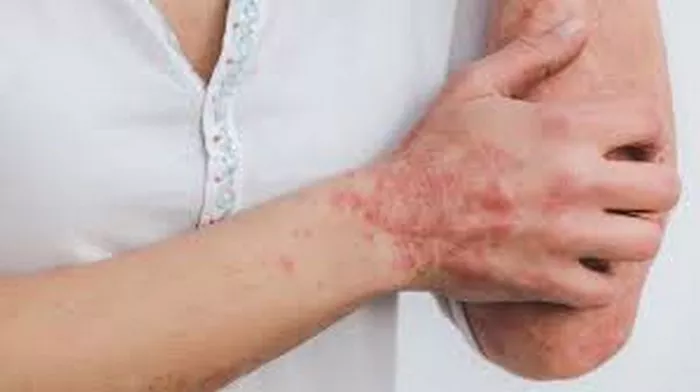Plaque psoriasis is a chronic autoimmune condition characterized by the rapid growth of skin cells, resulting in the formation of raised, red patches covered with white or silvery scales. This condition affects millions of adults worldwide, significantly impacting quality of life due to its persistent nature and associated symptoms. In this article, we delve into the complexities of adult plaque psoriasis, exploring its causes, symptoms, diagnosis, treatment options, and lifestyle considerations.
What Causes Plaque Psoriasis?
The exact cause of plaque psoriasis is not fully understood, but it is believed to involve a combination of genetic, immune system, and environmental factors. In individuals with a genetic predisposition, certain triggers can lead to an abnormal immune response, causing skin cells to multiply rapidly. This rapid turnover of cells results in the characteristic plaques and inflammation seen in psoriasis.
Common triggers and risk factors for plaque psoriasis include:
- Genetics: Family history plays a significant role, with many individuals having a close relative with psoriasis.
- Immune System Dysfunction: An overactive immune system mistakenly attacks healthy skin cells, triggering inflammation and excessive skin cell growth.
- Environmental Factors: Certain factors such as stress, infections, skin injuries (like cuts or burns), and medications (like lithium or beta-blockers) can exacerbate psoriasis or trigger flare-ups.
Symptoms of Adult Plaque Psoriasis
The symptoms of plaque psoriasis can vary in severity and presentation but often include:
- Red, raised patches of skin: These are often covered with silvery-white scales, known as plaques.
- Dry and cracked skin: The affected areas may itch, burn, or feel sore.
- Thickened or pitted nails: Psoriasis can affect the fingernails and toenails, causing abnormal nail growth.
The most commonly affected areas include the elbows, knees, scalp, lower back, and nails, although plaques can develop anywhere on the body.
Diagnosing Plaque Psoriasis
Diagnosing plaque psoriasis typically involves a thorough examination by a dermatologist. The diagnosis is often based on the appearance of the skin lesions and associated symptoms. In some cases, a skin biopsy may be performed to rule out other skin conditions with similar symptoms.
Treatment Options
While there is no cure for plaque psoriasis, various treatment options can effectively manage symptoms and improve quality of life for affected individuals. Treatment plans are tailored based on the severity of the condition, overall health, and patient preferences. Common treatment approaches include:
1. Topical Treatments: Creams, ointments, and lotions containing corticosteroids, vitamin D analogs, or retinoids can help reduce inflammation and slow down skin cell turnover.
2. Phototherapy (Light Therapy): Controlled exposure to ultraviolet (UV) light can help slow skin cell turnover and reduce scaling and inflammation.
3. Systemic Medications: For moderate to severe cases, oral or injected medications that target the immune system (such as biologics or methotrexate) may be prescribed to suppress inflammation.
4. Lifestyle Modifications: Avoiding known triggers like stress, smoking, and excessive alcohol consumption can help prevent flare-ups and manage symptoms effectively.
Lifestyle Considerations
In addition to medical treatments, certain lifestyle changes can positively impact psoriasis management:
1. Moisturizing: Keeping the skin well-moisturized can help reduce itching and scaling.
2. Avoiding Triggers: Identifying and avoiding triggers like stress, infections, or skin injuries can help prevent flare-ups.
3. Healthy Diet: Consuming a balanced diet rich in fruits, vegetables, and omega-3 fatty acids may help reduce inflammation.
4. Stress Management: Engaging in stress-reducing activities such as yoga, meditation, or deep breathing exercises can benefit overall well-being.
Coping with Psoriasis
Living with plaque psoriasis can be challenging, both physically and emotionally. It’s essential for individuals with psoriasis to build a strong support network, stay informed about their condition, and work closely with healthcare providers to find the most effective treatment plan.
Support groups, counseling, and educational resources can also provide valuable support and information for coping with psoriasis and improving overall quality of life.
Conclusion
Adult plaque psoriasis is a chronic condition that requires ongoing management, but with the right approach, most individuals can effectively control their symptoms and lead fulfilling lives. By understanding the causes, symptoms, and treatment options available, individuals with psoriasis can take proactive steps to manage their condition and minimize its impact on their daily lives. If you suspect you have psoriasis or are struggling to manage your symptoms, consult a dermatologist or healthcare professional for an accurate diagnosis and personalized treatment plan. With proper care and support, living well with psoriasis is achievable.
Related Topics:
























